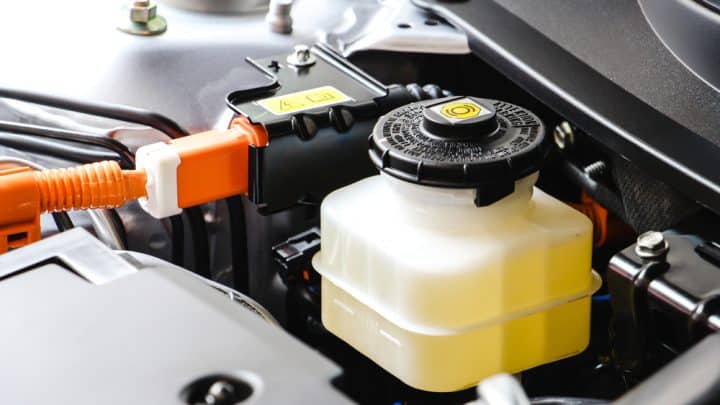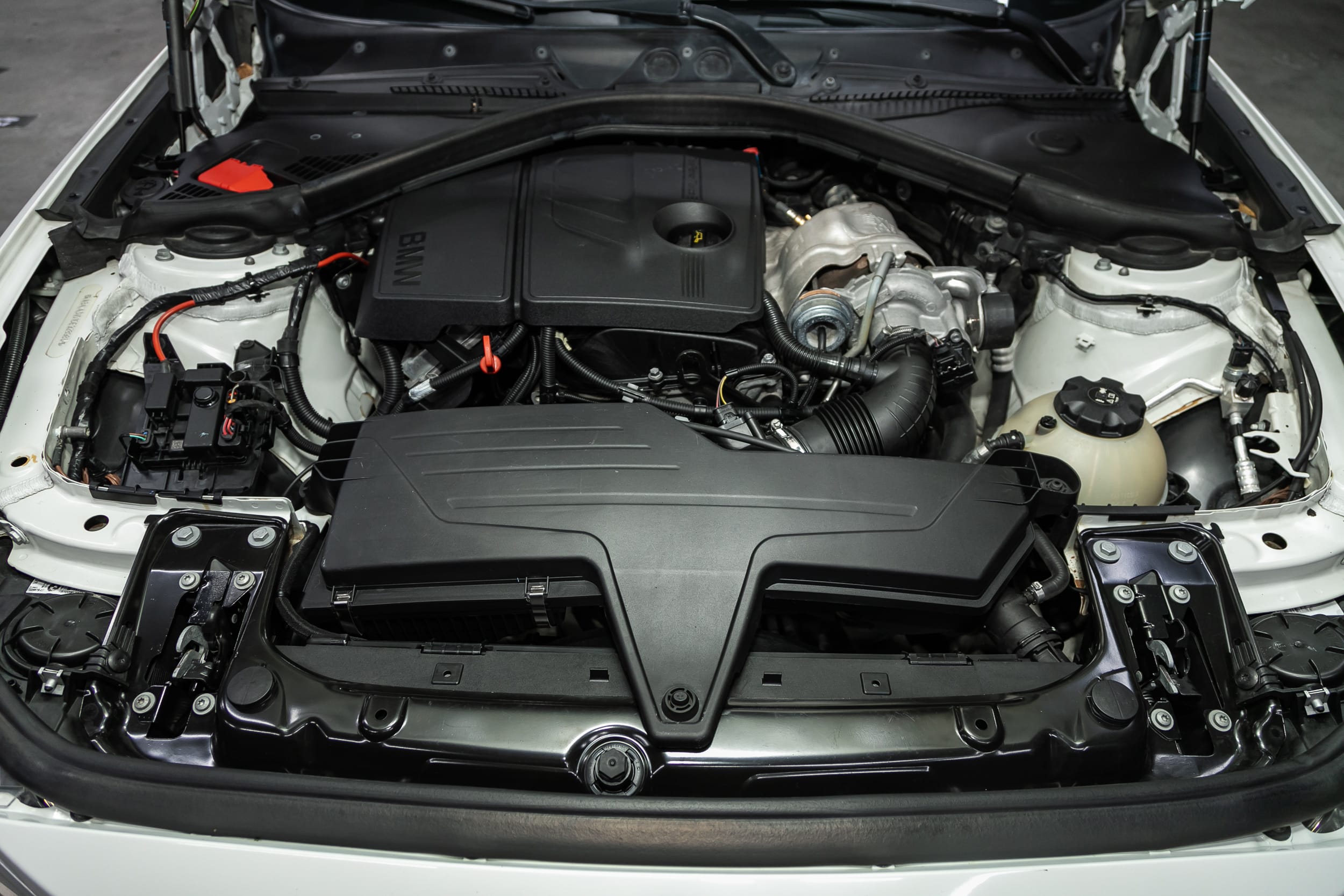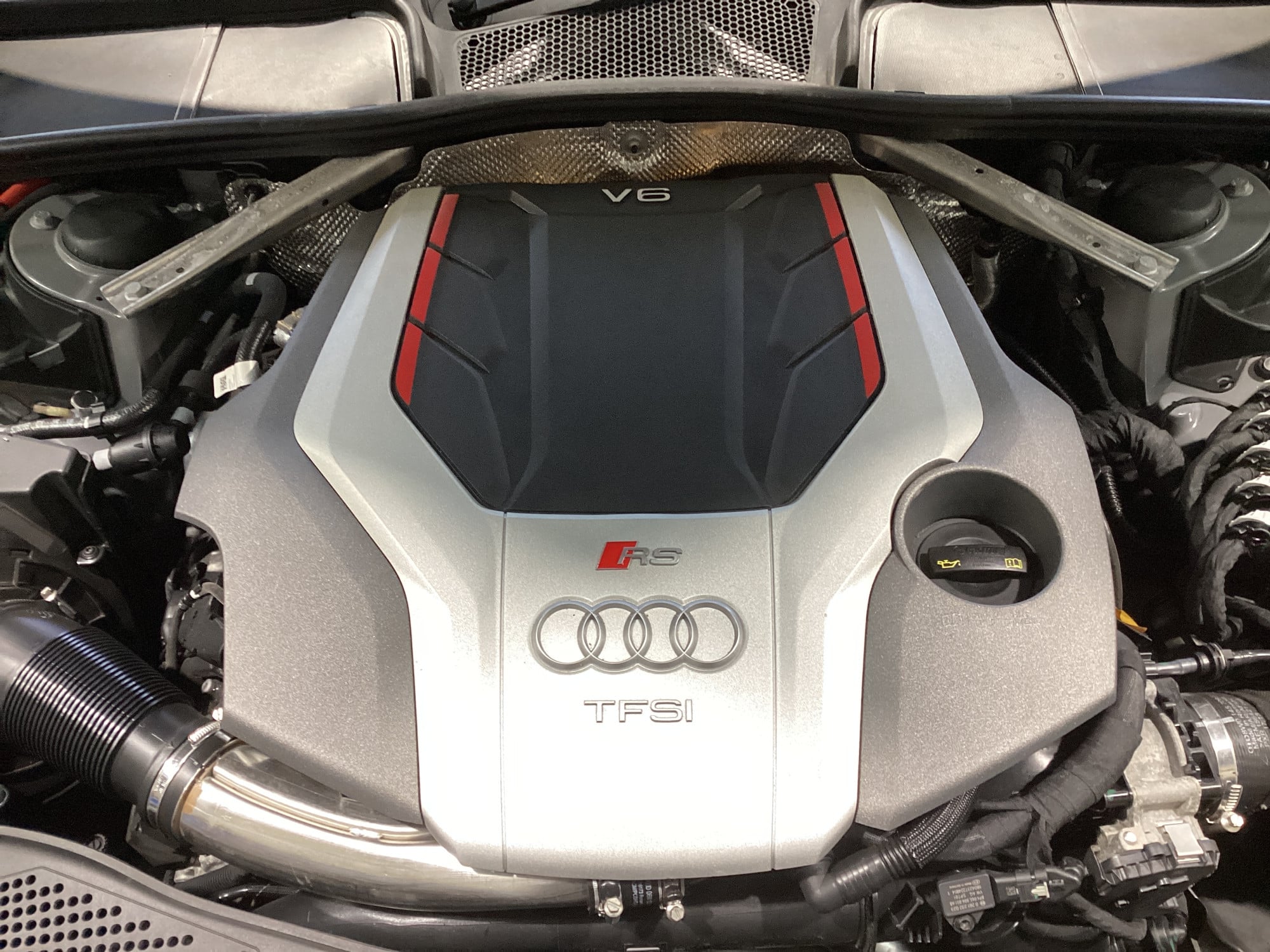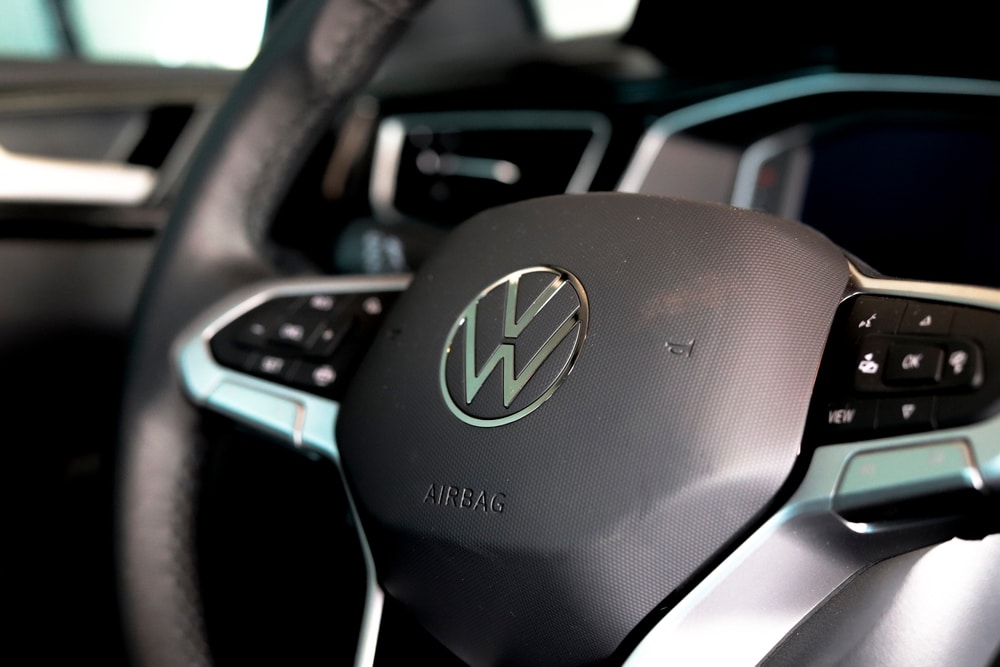Volkswagen Brake Fluid
We are all aware that our vehicle’s brakes must be in good working order to protect us, our passengers, and other road users. But do you know how to keep your braking system in good condition?
At Quality Car Service, we know that brake fluid is essential in the braking system. It lubricates the moving parts, reduces friction, prevents wear and tear, and must be kept in good condition to ensure effective braking.
In this blog post, we will take a look at the role of brake fluid in the Volkswagen braking system, what happens when it becomes contaminated or dirty, and how to check it yourself.
Let’s get started…
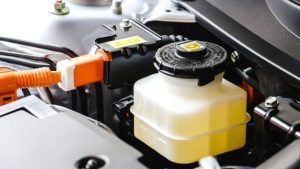
VW Brake Fluid: What It Does
Brake fluid is a specially formulated hydraulic fluid that transmits the force from the brake pedal to the brake components, ensuring efficient and reliable braking performance.
The key roles of brake fluid in a VW braking system are:
- Hydraulic Transmission: The brake fluid transmits the force applied on the brake pedal to the brake components. By pressing the brake pedal, the brake fluid transfers this force to the brake pads, which create friction and slow down or stop your vehicle.
- Heat Dissipation: Due to friction between brake components, brakes generate a significant amount of heat during braking. Because brake fluid has a high boiling point, it can dissipate heat effectively. With this, brake fade is prevented, and your braking performance remains consistent no matter your driving conditions.
- Lubrication and Corrosion Prevention: Various moving parts within the braking system, such as pistons and seals, are lubricated by brake fluid, which reduces friction and wear. Additionally, it contains corrosion-inhibiting additives that keep brake system components from rusting and deteriorating.
To guarantee optimal brake performance, which is critical for your safety, follow the brake fluid maintenance schedule recommended by Volkswagen for your specific model, carry out regular inspections, and replace the brake fluid at the scheduled intervals.
Our experts at Quality Car Service can service and maintain your Volkswagen braking system. This means we can save you both time and money by repairing any brake issues before they become major problems. With our services, you get the same quality as your local Volkswagen dealership but with better value.
To schedule your brake fluid service, call us today!
Driving with Dirty or Low Brake Fluid
If your vehicle’s brake fluid is low or dirty, it can compromise its overall braking performance and safety.
The following reasons explain why:
- Reduced Braking Efficiency: Low brake fluid levels may result in reduced braking power if there is insufficient fluid to engage the brakes. The result can be longer stopping distances and compromised vehicle control.
- Higher Risk of Brake Failure: There is a possibility of air entering the brake system if the brake fluid level is low. Under pressure, air compresses, unlike brake fluid, which is incompressible. As a result, the brake pedal can feel spongy and braking effectiveness can decline, also known as brake fade. Occasionally, it can even result in complete brake failure when the brakes fail to respond.
- Brake Fluid Contamination: Eventually, brake fluid can become contaminated with moisture, dirt, debris, and brake wear particles. If the brake fluid is contaminated, it may not be able to lubricate and protect the braking system components properly. In addition, it can damage seals and impair how critical brake parts, such as callipers, cylinders, and ABS systems work.
- Higher Risk of Overheating: High moisture content in dirty brake fluid lowers its boiling point. When braking heavily or driving under demanding conditions, brake fluid can boil, resulting in vapour lock. As a result of vapour lock, air bubbles are created in the brake system, resulting in poor braking performance and an unresponsive pedal.
To keep your Volkswagen’s braking system safe and effective, it’s important to regularly check the brake fluid level and ensure it’s within the recommended range.
The brake fluid should also be flushed and replaced at the manufacturer’s recommended service intervals to remove any contaminants in order to keep the braking system performing at its best.
If you notice low brake fluid or suspect dirty brake fluid, it’s best to have it inspected and serviced by a qualified VW technician. Our team at Quality Car Service can assist you with all of your Volkswagen brake fluid needs.
Volkswagen Brake Fluid Check
It is essential to have a reputable garage replace your brake fluid. Quality Car Service can provide you with high-quality brake fluid that is specifically designed for your Volkswagen make and model.
You can, however, check the brake fluid level in your Volkswagen yourself by following these steps:
- Make sure you park your Volkswagen on a level spot and turn off the engine.
- Locate the brake fluid reservoir. On the driver’s side of the engine compartment, it’s usually marked with “brake fluid” or a brake symbol. The container is made of plastic and is see-through.
- To prevent dirt or debris from falling into the reservoir, quickly clean the top before opening it.
- Check the level of the fluid. There are marks on the reservoir that indicate the minimum and maximum levels. The brake fluid should be between these marks. More fluid may need to be added if it’s near or below the minimum mark.Our technicians can help you with this.
- Examine the fluid’s colour. Typically, brake fluid is amber or slightly yellow in colour. A qualified technician may need to replace it if it appears dark, cloudy, or contaminated.
- When you’re done, close the reservoir cap securely.
Many newer VW models come equipped with an electronic brake fluid level sensor. Here’s how to check if your vehicle has this system:
- Make sure your engine is running and let it idle for a few minutes.
- Look for a menu-cycling button or control on the steering wheel or instrument cluster.
- Using the button or control on the dashboard display, you can check the brake fluid level.
- You will now see the percentage or bars of brake fluid in your brake system.
- If brake fluid levels are below the minimum threshold, the brake fluid needs to be topped up.
Check the brake fluid level according to the owner’s manual that came with your Volkswagen. These instructions and considerations will apply to your specific model.
Don’t hesitate to contact our VW experts at Quality Car Service if you ever feel uncertain or would like some professional help. If you have any questions or concerns about your brake fluid, they will be happy to assist you.
In Summary
It is important to keep your Volkswagen brake fluid in good condition to ensure your braking system is running effectively. Clean brake fluid at the correct level will lubricate and protect the system components from corrosion. Low or contaminated brake fluid can lead to costly repairs due to damage to critical components such as brake lines, callipers, and master cylinders. Dirty brake fluid can also affect the function of the Anti-lock Braking System (ABS), which prevents wheel locking while braking on challenging surfaces. Regular checks of your VW’s brake fluid will help you avoid these potential problems.
A qualified professional should always handle brake fluid maintenance or replacement. At Quality Car Service, our Volkswagen experts will ensure that your vehicle receives the best possible care. By replacing your brake fluid with clean, high-quality fluid, you can drive away from our Milton Keynes garage with peace of mind. Contact us today!
